Basic Math Skills Place Value Worksheets for Ages 3-8
5 filtered results
-
From - To
Discover our engaging Basic Math Skills Place Value Worksheets, perfect for children aged 3-8. These fun and educational worksheets aim to build a strong foundation in understanding place value, a key math concept. Through colorful exercises and playful themes, kids will enhance their number recognition, counting, and grouping skills. Designed by educators, each worksheet supports early learning and aligns with foundation curriculums. Whether practicing at home or in the classroom, these worksheets make mastering place value enjoyable and rewarding. Start your child's math journey today with confidence and joy. Visit to download and print now!
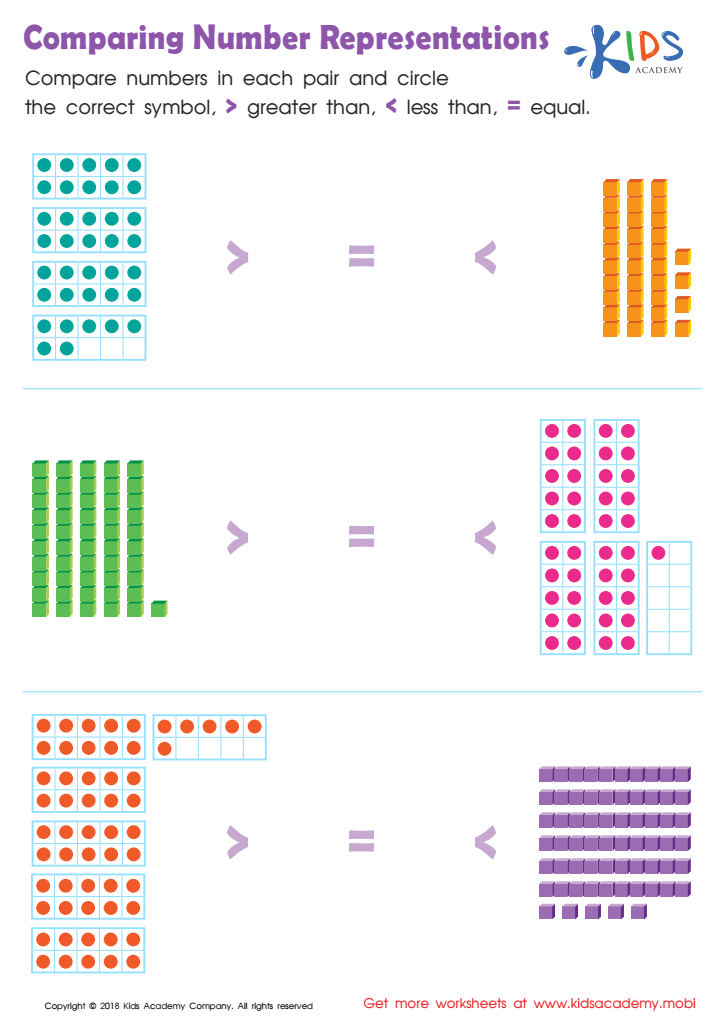

Comparing Number Representations Worksheet
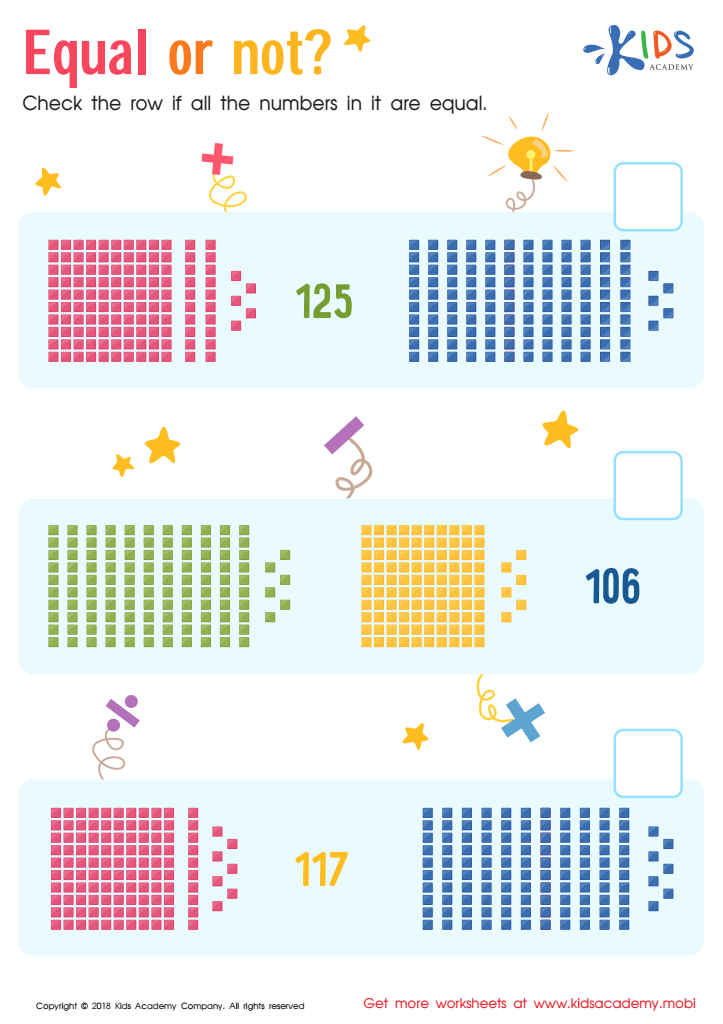

Equal or not Worksheet
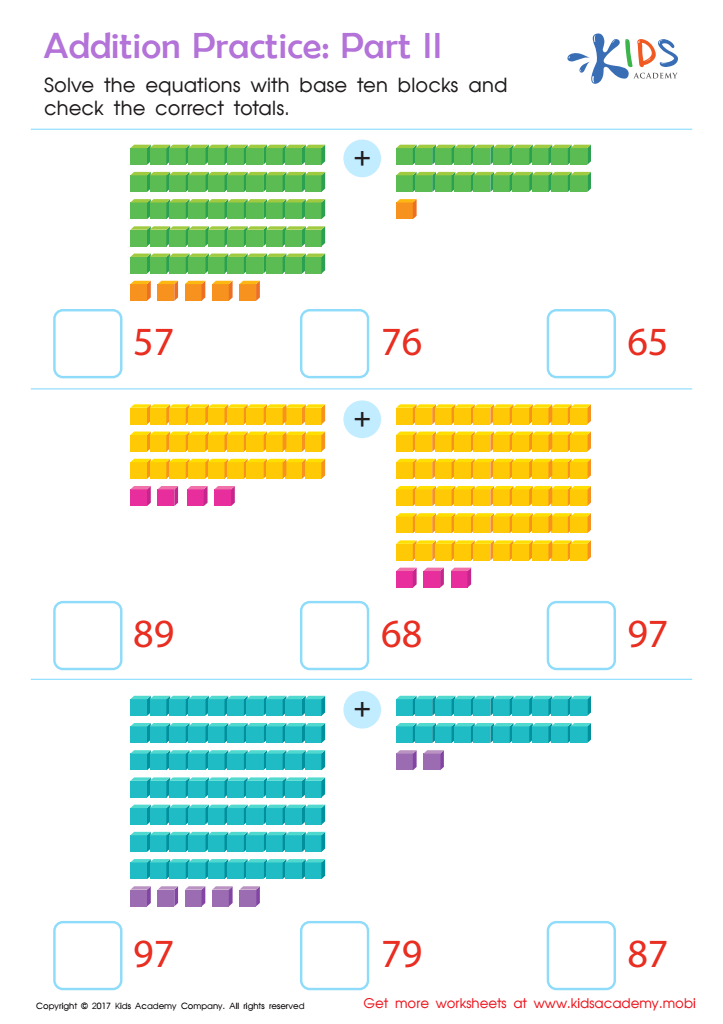

Addition Practice Sheet: Part 2
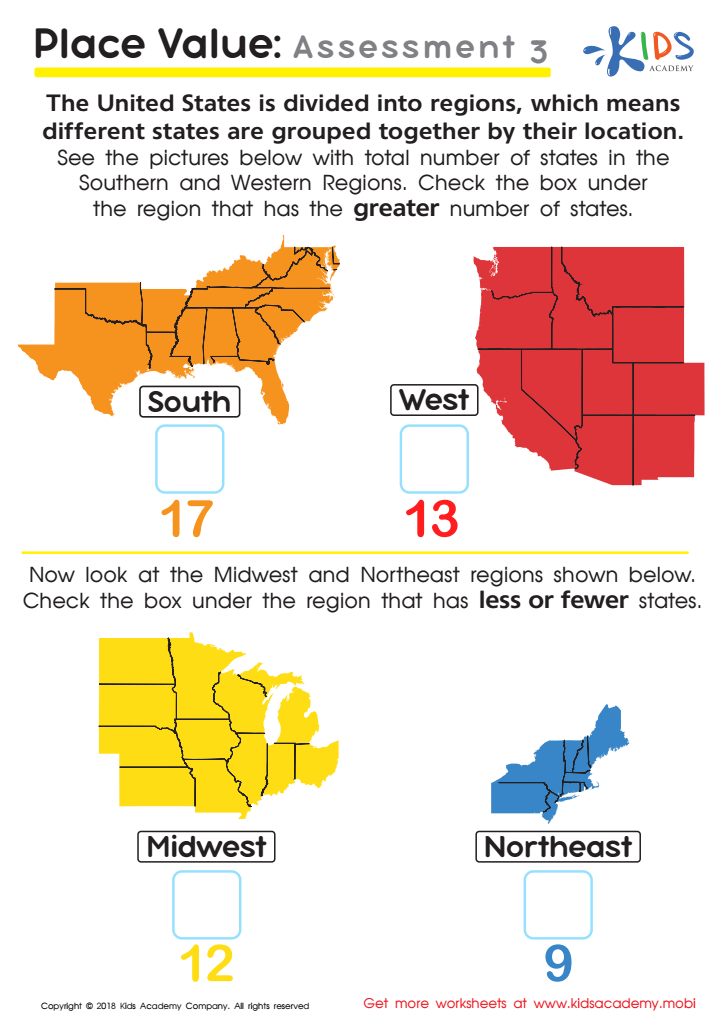

Place Value: Assessment 3 Worksheet
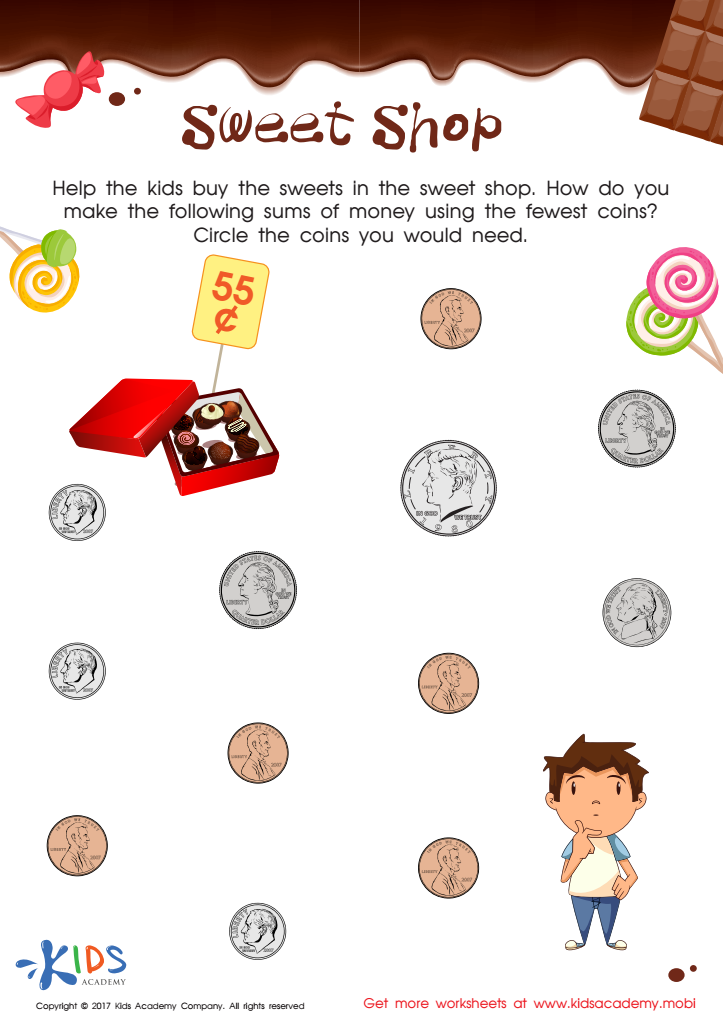

Sweet Shop – Counting Coins Worksheet
Basic math skills, especially place value understanding, are foundational for young children aged 3-8. Parents and teachers should care about these skills because they form the building blocks for more advanced mathematical concepts. Place value is essential in understanding the numerical system; it helps children comprehend that the position of a digit within a number determines its value. For example, the digit 5 in 50 is ten times greater than the digit 5 in 5.
By mastering place value, children are better prepared for addition, subtraction, multiplication, and division as they progress through their education. These skills enhance number sense, allowing children to perform mental calculations more easily and quickly understand the principles of counting, grouping, and regrouping.
Strong place value skills also translate into improved problem-solving abilities, a critical thinking area applicable in all areas of learning and real life. Early confidence and competence in math can further instill a positive attitude towards the subject, reducing math anxiety and fostering a mindset of perseverance and curiosity.
In essence, prioritizing place value instruction in early childhood equips children with the essential tools for future academic success, laying a solid foundation for both their educational journey and everyday life.
 Assign to My Students
Assign to My Students




















